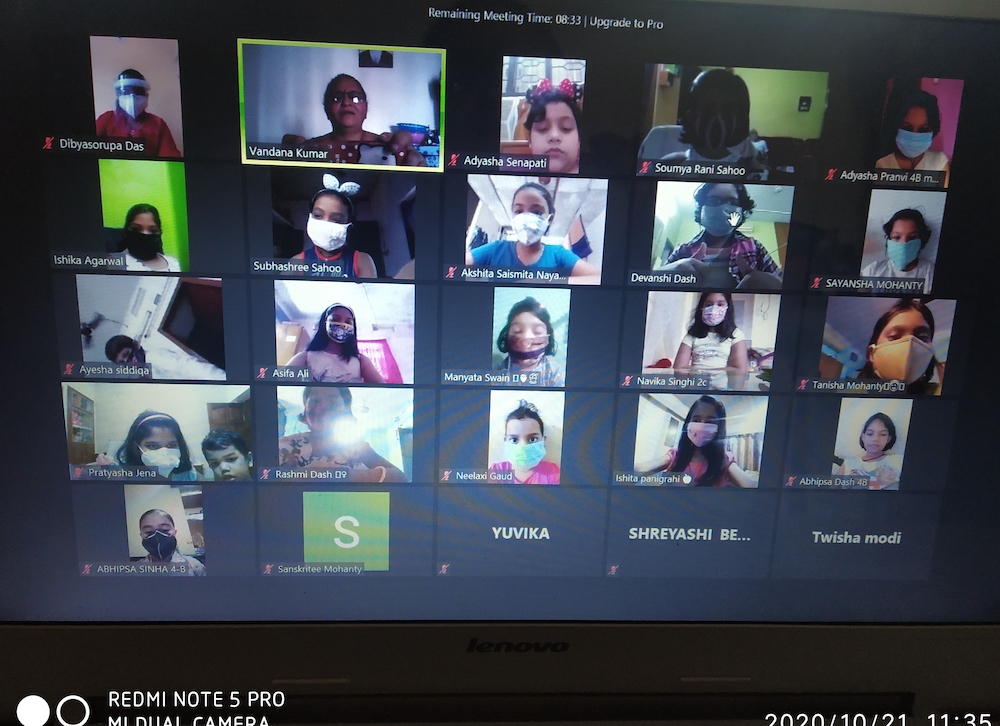
COVID-19 accelerated the adoption of digital technologies to deliver education. Education institutions moved toward blended learning and encouraged teachers and students to acquire technology savvy.
The times that have been never dreamt of. The pandemic times which blow around the globe, leaving no space untouched. They certainly have left a very memorable impact in the field of education. By the end of March 2020, the pandemic was everywhere, resulting in the closure of most of the schools, colleges and universities in India.
Though there were many negative impacts from the COVID-19 outbreak on the field of education, there was also a positive impact which could take the education system and its methods a step higher. The pandemic has opened gates to innovative methods of transmission of knowledge across the globe. It was very challenging to India as many people live in areas without internet, and others attend more poorly equipped government-run schools. Many efforts were made to continue education at all levels with online methods, but it could not be made available to everyone.
Looking at the positive side of the pandemic's impact on education, I would surely say that the learning cells in our brains became active to think about and analyze how to continue with the education of young minds. It might have been on the internet that I read this quote attributed to Marvin Minsky: "You don't understand anything until you learn it more than one way." This quote was certainly illustrated during the pandemic, as teachers used diverse methods for teaching and learning.
COVID-19 accelerated the adoption of digital technologies to deliver education. Education institutions moved toward blended learning and encouraged teachers and students to acquire technology savvy. Soft technology, online, webinars, virtual class rooms, teleconferencing, digital exams and assessments became common phenomenon, where otherwise we might have merely defined them — or they might have come into practical use a decade later or more.
Advertisement
There was unimaginable collaboration among all the stake holders in the field of education — including administration, teachers, students, parents and companies making the software for transfer of knowledge in innovative ways.
Many found that global education and worldwide exposure to ideas is available for those who seek after it.
The expenditures on travel, tours and the purchase of study materials has gone down, and it could result in savings in these hard times.
Though there was much advancement in the technology side of education, we could also see negative impacts of COVID-19 on education.
Educational activities are hampered to a great extent, and we could sense a great amount of confusion, the postponement or delay in exams, academic sessions or the like. There was not enough space for the so-called co-curriculum.
The digital world was a dilemma for the teachers who were experts in book, talk, chalk and classroom methods. They had to be trained to meet the challenges of the present situation and go ahead with online teaching. And many students struggled to obtain the gadgets needed for digital learning.
Many educators looked for alternative jobs to sustain their families as they lost their teaching jobs or their salaries were withheld. Now former teachers are now trying to fit into any job that they can get.
Everything went better — though difficultly — for educated parents as they helped their children, but it's also time to understand the helplessness of the parents who could not help their children.
As the midday meal provision is a great blessing to many students in India, closure of schools during lockdown meant many children were deprived and malnourished.
Pandemic has been a challenge to educational institutions, as the payment of fees was very poor. Many low budget schools got shut down.
Everyone has doubts and questions: When will life be normal? Is the vaccine ready? But life continues to go on and so does education. We sense the great damage done to the field of education in this era of the coronavirus. We also count COVID-19 as a blessing in disguise. The pandemic has opened doors to the new opportunities like more digitalization. The situation demands the updating of infrastructure and knowledge of how to face events like these in the future.







